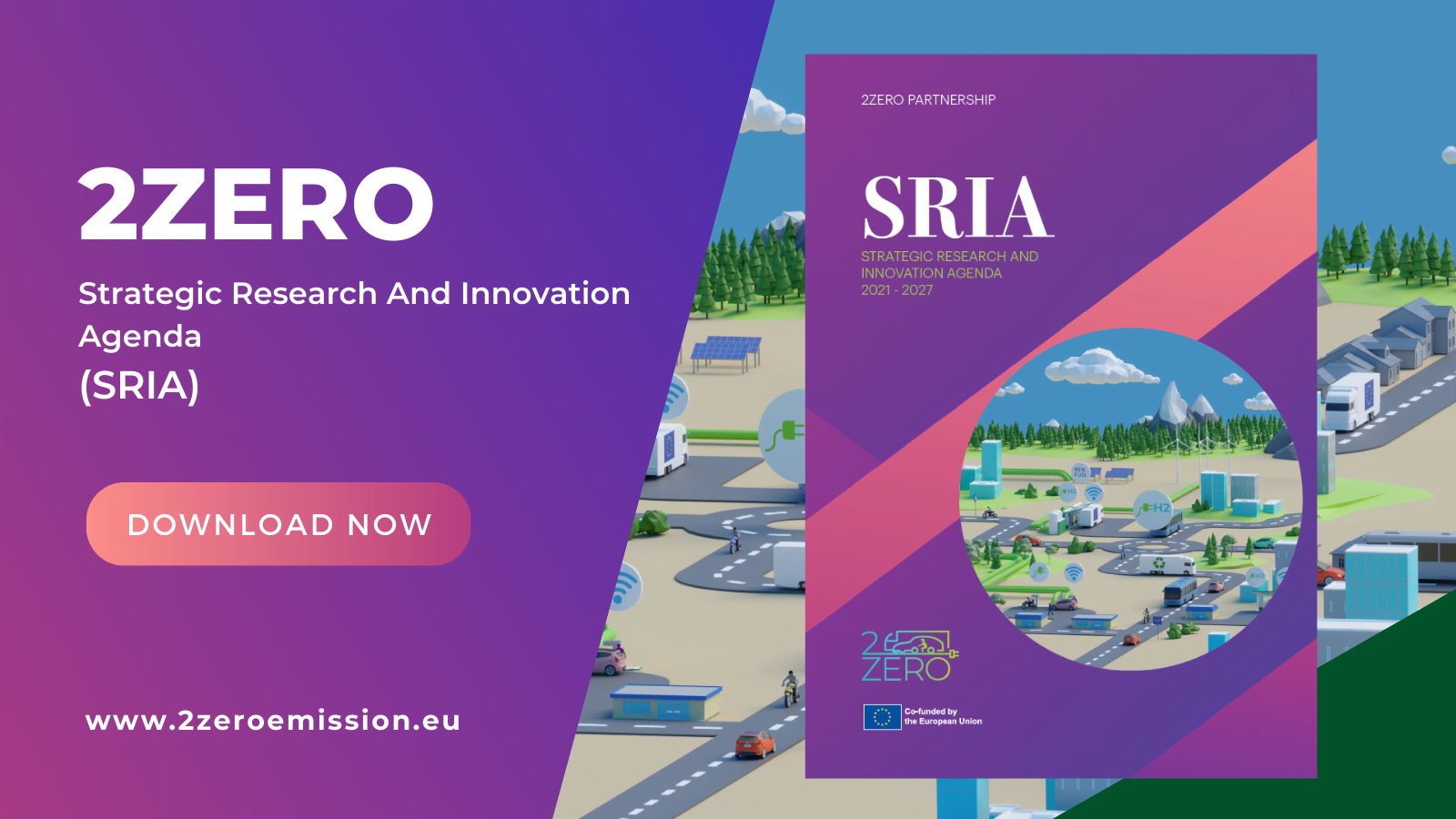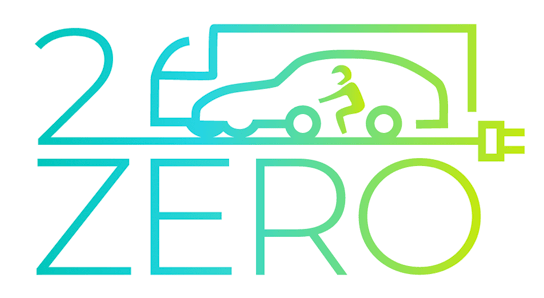The new version of our 2Zero SRIA is available

Starting from January 2023, all stakeholders involved in the work of the 2Zero Partnership were invited to contribute to the update of the Strategic Research and Innovation Agenda (SRIA).
After the publication of two Work Programmes (2021-2022 and 2023-2024) and 32 projects selected for funding, it was time to evaluate the work done so far and to plan for the future, also considering the latest updates in relevant legislation pieces, such as Fit for 55, AFIR, Sustainable and Smart Mobility Strategy.
This update mostly focused on the four pillars of the 2Zero Partnership:
• Pillar 1: Vehicle technologies and vehicle propulsion solutions for BEV and FCEV
• Pillar 2: Integration of the BEV into the energy system and related charging infrastructure
• Pillar 3: Innovation concepts, solutions and services for the zero emission mobility of people and goods
• Pillar 4: LCA and circular economy approaches for sustainable and innovative road mobility solutions
Under Pillar 1, changes were made to reinforce several aspects, including the role of the common European Mobility Data Space, further research efforts related to new concepts for light electric vehicle, as well as to better consider usage models when sizing different systems. The modifications also aimed to address even more modularity, recyclability, and reusability of materials, echoing Pillar 4.
In Pillar 2, the main modifications aimed at reinforcing the interoperability and user-centric aspects, the balance between public and (semi) private charging infrastructure to support the integration of EVs into the grid, and the specific challenge posed “behind the meter”. The importance of the Renewable Energy Sources (RES) integration and the Vehicle-to-Everything (V2X) services were reinforced. Battery swapping technologies were also reevaluated to be better considered in liaison with Pillars 1 and 3.
Pillar 3 description was rationalised, and some aspects were clarified. Four main items were strengthened: the user-centric perspectives for people and freight mobility, the potential of collaborations with the CCAM Partnership, the integration in Mobility-as-a-Service (MaaS) and Transport-as-a-Service (TaaS), and the integration in Physical and Digital Infrastructure.
In the 4th Pillar, circular economy aspects were extended to the “9Rs”, and resource sovereignty is now being better considered. New sub-topics were also introduced in the pillar, such as the track and trace of the products and their use over their lifetimes, as well as capacity building for the circular economy.
In addition to these important developments, the review process also addressed international aspects and coordination with other partnerships and (new) initiatives, such as the Cities mission, throughout the entire SRIA.
Congratulations to all the SRIA co-leaders and the many contributors for their active engagement in making this new version of the 2Zero SRIA even more ambitious.
You can download the full version from the 2Zero document page.
